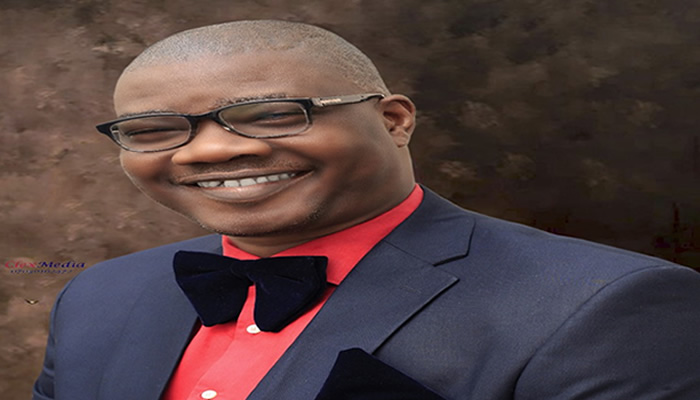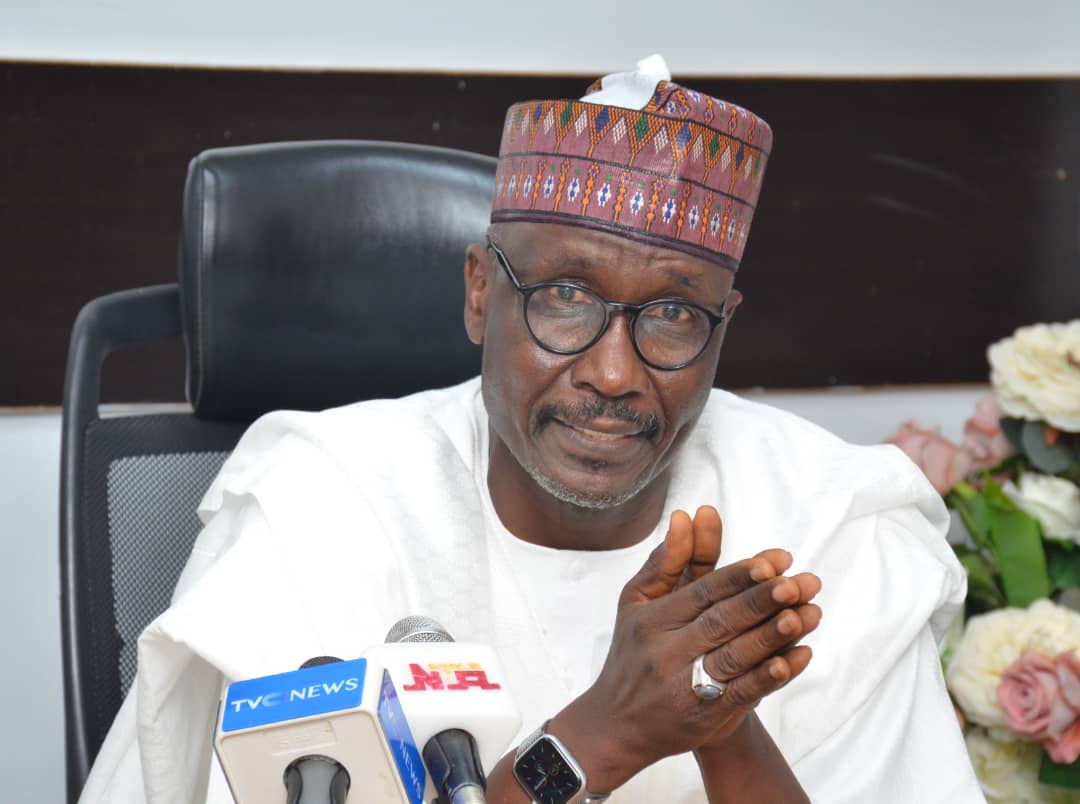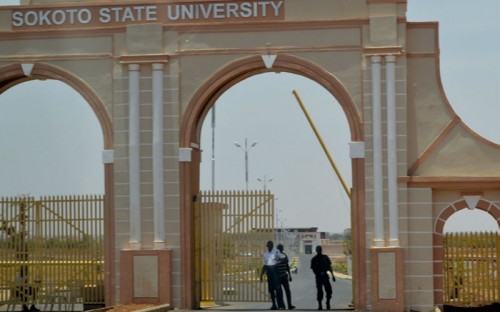Metro
Operation ‘Wetie’ in Rivers State: From Genesis to Revelation

Since Nigeria’s return to civil rule in 1999, Rivers State, often called the “treasure base of Nigeria,” has seen five governors: Peter Odili, Celestine Omehia, Chibuike Amaechi, Nyesom Wike, and the current governor, Simnalayi Fubara. The state’s first major political crisis erupted in 2006 during the Peoples Democratic Party (PDP) governorship nomination for the 2007 election. Amaechi won the primary, but former President Olusegun Obasanjo claimed his victory had “k-leg,” leading to the unjust award of the party nomination to Omehia, who had not participated in the primaries. However, on October 25, 2007, the Supreme Court nullified Omehia’s election and ordered Amaechi’s immediate swearing-in as governor.
This landmark ruling established the principle that voters cast their votes for political parties rather than individual candidates. The Supreme Court upheld this notion again in September 2016 when it ruled that votes cast for the deceased Prince Abubakar Audu in the Kogi governorship election were actually for the All Progressives Congress (APC), allowing Yahaya Bello to inherit those votes.
During Amaechi’s tenure, Wike served as his Chief of Staff from 2007 to 2011, following his time as Chairman of Obio-Akpor Local Government from 1999 to 2007. Wike became the Minister of State for Education from July 14, 2011, until April 2014. His relationship with Amaechi soured during this period, especially after Amaechi defected from the PDP to the APC on November 26, 2013. Wike, backed by former President Goodluck Jonathan, won the PDP governorship primary and the subsequent 2015 election, serving two terms until May 29, 2023. He orchestrated Fubara’s election as his successor in the 2023 governorship polls.
Wike is rumored to have financed the campaigns of many elected officials in Rivers State during the 2023 elections, which has allowed him to maintain control over the Rivers State House of Assembly. He also nominated a significant number of commissioners in Fubara’s cabinet, with at least nine key ministries seeing resignations in May 2024.
Governor Fubara’s administration faced turmoil just four months post-inauguration. On the night of October 29, 2023, an explosion destroyed the assembly complex, leading to impeachment proceedings against him by a faction of the assembly claiming gross misconduct. This dispute resulted in two factions claiming authenticity, with both sides seeking judicial intervention through various ex-parte orders.
On December 12, 2023, Justice Monina Danagogo of the Rivers State High Court recognized Edison Ehie as the legitimate Speaker, limiting the roles of Martin Amaewhule and Dumle Maol. Following this ruling, Fubara quickly presented the N800 billion 2024 Appropriation Bill to the faction led by Ehie and signed it into law the next day.
Fubara ordered the demolition of the House of Assembly, with heavy machinery arriving to raze the building instead of repairing the damage. On December 11, 2023, 27 lawmakers loyal to Wike defected to the APC, citing internal divisions within the PDP and Fubara’s refusal to pay their salaries.
President Tinubu intervened in the crisis, leading to an eight-point resolution on December 18, 2023. Key points included the withdrawal of court cases related to the crisis, cessation of impeachment proceedings against Fubara, and the recognition of the Amaewhule-led assembly. However, Fubara failed to comply with the requirement to re-present the state budget to this faction.
In May 2024, as the tenure of 23 local government chairpersons and councilors ended, the Amaewhule faction extended their terms by six months. Yet, a judgment by Justice Daketima Kio declared this extension unconstitutional. Subsequently, Fubara appointed caretaker committees to oversee the local governments until proper elections could be held.
A Supreme Court ruling on July 11, 2024, mandated that local governments in Nigeria must be democratically governed. Following this, a three-month moratorium was agreed upon concerning the ruling. Fubara claimed he needed to conduct local government elections before October 31, 2024, to avoid the federal government seizing state allocations.
Recently, in the PDP congresses leading up to the local government elections, Fubara’s camp lost to Wike’s faction. Fubara subsequently urged his supporters to switch to the Action Peoples Party (APP) for the local elections. On October 6, 2024, the RSIEC declared that APP had won chairmanship in 22 of the 23 local government areas.
Protests and unrest followed, with arson targeting several council secretariats. Reports indicated fatalities, raising concerns over the escalating violence. President Tinubu called for calm and urged the aggrieved parties to seek judicial resolution.
The ongoing power struggle in Rivers State echoes the historical “Operation Wetie” during the post-election crises of the western region in 1964-1965, which ultimately led to Nigeria’s first military coup. President Tinubu must rein in his Minister of Federal Capital Territory, Nyesom Wike, to prevent further violence in his home state. The ongoing turmoil threatens not only the stability of Rivers State, a vital contributor to Nigeria’s oil and gas production, but also the integrity of the Fourth Republic.
Metro
Groups condemn sponsored protests, media attacks against ex-NNPCL boss Kyari

Coalition Of Civil Society Organisations In Nigeria (COCSON) and Bloggers and Vloggers, Content Creators Association (BAVCCA) have warned against politically engineered protests against the immediate past Group Chief Executive Officer (GCEO) of the Nigerian National Petroleum Company Limited (NNPCL), Malam Mele Kyari, who “served the nation faithfully.”
In a statement jointly signed on Thursday by COCSON’s National Mobilisation Officer Comrade Tabuko Kennedy and BAVCCA’s Spokesperson Efe John Abayomi, the two groups urged President Bola Tinubu to overlook undue distraction from enemies of his administration while rejecting a calculated attempt to malign the person and office Kyari hitherto held concerning the $2 billion crude-for-loan deal.
COCSON and BAVCCA chided agents of mischief and fake news merchants over baseless media attacks on the former NNPCL GCEO while urging anyone with genuine proof of Kyari’s wrongdoing while in office to present it through proper legal channels and not through sponsored headlines and mob protests.
The groups maintained that Kyari has done everything a true patriotic and honest leader can do. In a very difficult economic crisis and Part of the solution to Nigeria’s foreign exchange challenge, a puzzle that nearly crumbled the economy.
The statement read in part:
“We will not sit back and watch a reformer be sacrificed on the altar of politics. We call on our progressive President Bola Ahmed Tinubu to remain steadfast and not allow these desperate tactics to distract his government from the broader goal of sanitizing the petroleum sector.
“If anyone has genuine proof of wrongdoing, let them present it through proper legal channels — not through sponsored headlines and mob protests.
“Mele Kyari has done everything a true patriotic and honest leader can do. In a very difficult economic crisis, He stood for the greater good of all Nigerians instead of a few cabals. He has been Part of the solution to Nigeria’s foreign exchange challenge, a puzzle that nearly crumbled the economy.
“Let us be clear: this is not a scandal — it is a structured misrepresentation of a standard commercial transaction that predates this administration and has been carefully supervised under the regulatory and sovereign structures of the Federal Government of Nigeria.
THE TRUTH THEY WON’T TELL YOU:
“The $3.3 Billion Crude-Backed Loan Was a Sovereign Deal: This transaction, executed in collaboration with Afreximbank and backed by the Federal Government, was designed to stabilize Nigeria’s foreign exchange reserves and provide a buffer against economic shocks — not to “mortgage Nigeria’s future” as ignorantly portrayed by politically motivated street protesters hired by ungrateful elements working against the progressive leadership of President Bola Ahmed Tinubu.
“Kyari Was Not Acting Alone: Every stage of the crude-for-loan framework was vetted by relevant agencies — including the Ministry of Finance, Debt Management Office, and the Attorney General’s Office. Kyari was executing national policy, not personal ambition.
“No Missing Crude, No Diversion of Funds: There is zero evidence of crude diversion, missing shipments, or financial misappropriation. All proceeds and repayment schedules are transparent, documented, and auditable. Anyone who has a valid case should first present proof of his claims instead of taking Nigerians’ collective sense of judgment for a ride.
“Kyari Has Been Nigeria’s Most Transparent NNPC Boss in Decades: Under Kyari’s leadership, NNPC was transitioned into a commercially-run, limited liability company. For the first time in NNPC’s history, its books are published, audited, and made public. That’s not corruption — that’s reform.
PRESIDENT TINUBU REPOSES TRUST IN MELE KYARI
“On January 8, 2025, President Bola Ahmed Tinubu commended the former NNPCL GCEO, Mallam Mele Kyari, on his 60th birthday, praising his service and integrity. In the President’s words, “Kyari is a shining example and embodiment of the ideals of the Renewed Hope Agenda. I commend his commitment to creating new opportunities and ensuring the growth and sustainability of Nigeria’s energy sector.” This statement, made soon after Kyari’s exit, makes it clear that his departure was not a dismissal but a smooth transition, with his legacy of reforms and achievements in the oil and gas sector fully recognized and appreciated at the highest level.
“The Protest Is Politically Engineered: We have credible information that certain vested interests, threatened by the sanitization of the oil sector, are sponsoring protests and media hysteria to derail reforms and force Kyari out.
“We stand with Mele Kyari. We stand for due process. We stand for national interest.”
Metro
KAM Holding GMD Felicitates Emir Of Ilorin On 85th Birthday

- Describes Emir As Harbinger Of Hope, Development
Stephen Olufemi Oni, Ilorin
The Group Managing Director of
KAM Holding Ltd, Dr. Kamoru Yusuf, has felicitated the Emir of Ilorin, Alhaji Ibrahim Sulu-Gambari on the occasion of his 85th birthday.
Yusuf, in a congratulatory message, praised the Emir for being an harbinger of hope and development.
The business mogul expressed delight that the reign of Sulu-Gambari has brought unparalleled development to Ilorin Emirate and Kwara State as a whole.
Yusuf added: “It is heartening that Allah has preserved Your Highness for us to cover this mileage with truckload of accomplishments in all spheres of human endeavour.
“No doubt, Ilorin has grown to be a Cosmopolitan City during your reign, and this is an attestation to Your Highness’s pragmatic leadership. With the level of growth and development in Ilorin among its contemporaries, I am of implicit confidence that what has been achieved is just a precursor for more goodies in the offing.
“On behalf of my family, management and staff of KAM Holding Limited, I congratulate Your Highness and wish you longevity of life with sound health.”
Ends
Metro
Fire Destroys Newly Built Female Hostel at Sokoto State University

A newly constructed female hostel at Sokoto State University was engulfed by fire on Tuesday, causing panic among students and staff.
The blaze, which started around 3:30 p.m., completely destroyed the building, which had been built to ease accommodation challenges. While the cause remains unknown, a student noted that those initially assigned to the hostel had already been relocated before the incident.
Confirming the fire, the Students’ Union President said firefighters arrived at the scene by 5:00 p.m. to combat the flames. However, authorities have yet to release an official statement on the cause or extent of the damage.
-

 Uncategorized5 years ago
Uncategorized5 years agoFG, states urged to harness flooding for ranching, others with technology – Agbaje
-

 Headlines10 years ago
Headlines10 years agoBreaking: EFCC seals Borno House of Assembly, as Hon members take to their heels
-

 News12 years ago
News12 years agoNigeria Security Operatives Stage Manhunt For Homosexual Perpetrator
-

 News9 years ago
News9 years agoHow 21-year-old Girl fled community over accusation of lesbianism
-

 News10 years ago
News10 years agoYobe Gov Moves Against Deputy
-

 Opinion7 years ago
Opinion7 years ago7 signs she has friend zoned you
-
Technology4 years ago
Online job placement company headhunts women
-

 Headlines10 years ago
Headlines10 years agoBorno Dep Gov Abducts Another Church Leader





